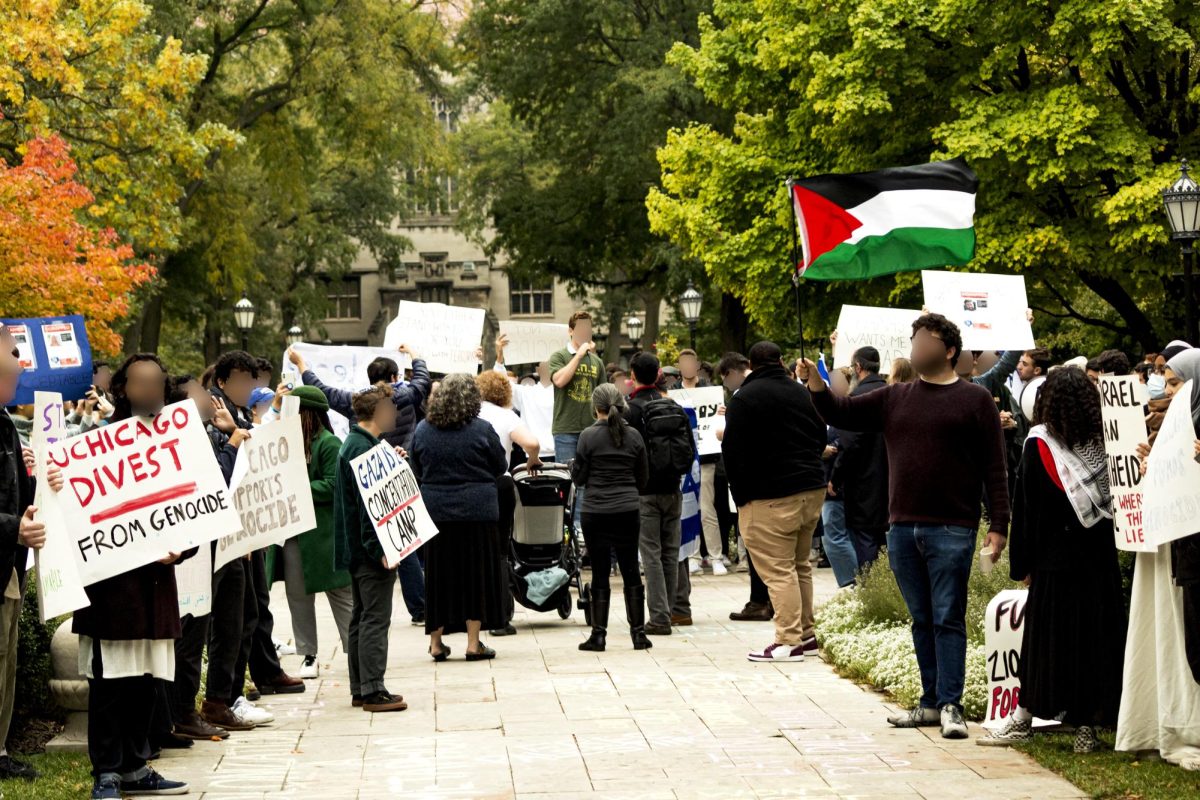On Wednesday, November 1, University President Paul Alivisatos and Dean of Students Michele Rasmussen outlined the University’s policies regarding protests and demonstrations in emails addressed to the University community and students respectively.
The emails came after demonstrations relating to the Israel-Hamas war took place on campus, including Students for Justice in Palestine (SJP) at UChicago’s daily quad protests and vigils hosted by campus Jewish organizations and fraternities. The tension reached a high point on Thursday, October 19, when confrontations broke out as opposing protests took place at the center of the quad.
The first email, which came from President Alivisatos had the subject line “The enormous gifts and great responsibilities of the Chicago Principles for members of our community.” The email emphasized the University’s commitment to free expression in accordance with the Chicago Principles.
“Protests and demonstrations are an essential part of our culture of free expression, and within the University are protected as essential venues for truth seeking,” the email read. “Provided you are complying with the University policies on protest and demonstration, you may join in congress with others in protest and express your views.”
Alivisatos also reminded students to uphold the University’s policies on protests. “In any venue, no member of our community may shout down or seek to prevent the protected expression of those with whom they disagree. You may not tear down a poster. You may not seek to intimidate or threaten another person, or prevent them from hearing an invited speaker. These are egregious offenses against our community. We have policies and processes for guiding community norms, reporting instances that require investigation, and disciplinary action when needed,” the email read.
Alivisatos’s email was followed shortly after by an email from Rasmussen, with the subject line “Student Resources in Support of Free Expression.” Her email included hyperlinks to relevant University web pages, including policies regarding demonstrations, flyers and posters, and discipline in the case of “disruptive conduct.” Rasmussen’s email referenced the Protests and Demonstrations section of the Student Manual.
“Protests and demonstrations, whether planned or spontaneous, are integral to a campus that fosters free expression,” the email read. “However, these actions should be peaceable and orderly, and should not interfere with the expression of others or disrupt academic, research, or administrative activities at the University.”
Her email also stated that the University does allow the posting of flyers, posters, and banners without any content restrictions, unless the content “violates the law, falsely defames a specific individual, constitutes a genuine threat or harassment, unjustifiably invades substantial privacy or confidentiality interests, or is otherwise directly incompatible with the functioning of the University,” according to the Posting Policy section of the Student Manual. Postings should also not cover other postings put up by other organizations or individuals.
The punishments for violating University policy regarding demonstrations, protests, postings, or other mechanisms related to free expression are laid out in the Disciplinary System for Disruptive Conduct section of the Student Manual.










Free Speech / Nov 3, 2023 at 1:04 pm
For further accuracy, the university statutes also enable them to target disciplinary actions towards forms of speech that disrupt “enjoyment” of the university for both university personnel, students, and guests. It is carefully designed to give them backing to target any sort of demonstration they want. It is a joke.